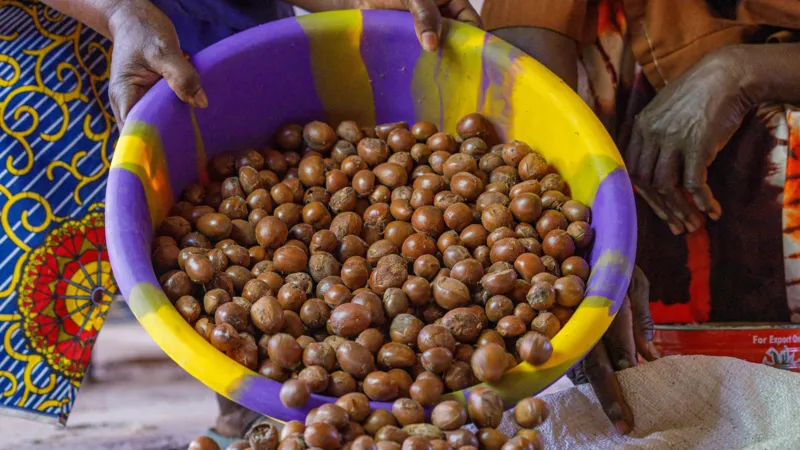The Centre For The Promotion of Private Enterprise has said that the immediate implementation of the ban on shea butter export was hurting local farmers and impacting investor confidence.
This was disclosed in Sunday’s policy brief from the organisation, which was signed by Chief Executive Officer, Dr. Muda Yusuf.
The Federal Government recently imposed a six-month ban on raw shea nut exports to accelerate domestic value addition and support Nigeria’s industrialisation drive. Nigeria is estimated to account for about 40 per cent of global production.
CPPE boss said that while the goal is laudable, the instantaneous implementation of the ban has created severe disruptions in the shea nut value chain, “hurting farmers, aggregators, exporters, and logistics providers. Moving up the value chain through local processing could generate jobs, foreign exchange, and industrial capacity.
However, policy credibility is crucial: sudden bans on exports with immediate effect introduce uncertainty, heighten risk, and undermine investor confidence, deterring investment not just in shea but across the broader non-oil export sector.”
Highlighting the challenges of the sudden export ban, the economic analyst said the price of shea has fallen by over 30 per cent since the ban, thus harming the incomes of farmers and aggregators. Also, exporters face legal and reputational risks due to potential default on existing export contracts.
Credit facilities that had been taken out in this value chain are also facing defaults.
“Abrupt policy shifts send negative signals to investors, who may perceive higher policy risk in Nigeria. The progress made in non-oil exports, over $3bn in the first quarter of 2025, could be reversed if confidence declines. The ban threatens thousands of jobs in cultivation, aggregation, logistics, and trade in shea nuts. The policy effectively penalises primary producers to benefit processors, creating a zero-sum scenario rather than a shared-growth model,” he asserted.
Yusuf then called for “a phased, consultative transition framework to safeguard investor confidence, preserve hard-won gains in non-oil exports, and ensure inclusive, market-driven growth. Introduce clear timelines for phasing out raw exports, allowing businesses to adjust operations. Permit fulfilment of existing export contracts to prevent defaults and maintain Nigeria’s credibility.
“Address structural challenges, power supply, logistics, infrastructure, and financing to enable processors to purchase raw materials at market prices and still compete internationally. Promote innovation and efficiency in processing rather than reliance on artificially low input costs. Ensure farmers capture fair market value for their produce, sustaining rural livelihoods and incentivising production. Avoid policies that force primary producers to subsidise processors indirectly. Establish regular consultative platforms involving farmers, processors, exporters, and financiers. Improve policy predictability and transparency to build investor trust.”
He maintained that while local value addition remains critical to Nigeria’s economic diversification, it must be pursued in a way that is inclusive and market-friendly.
“A phased transition, supported by structural reforms, will protect rural incomes, sustain non-oil export growth, and ensure that processors thrive on competitiveness rather than on a regime of subsidised raw materials. Policy stability and stakeholder engagement are essential to achieving a win-win outcome for farmers, processors, and the broader economy,” he concluded.















